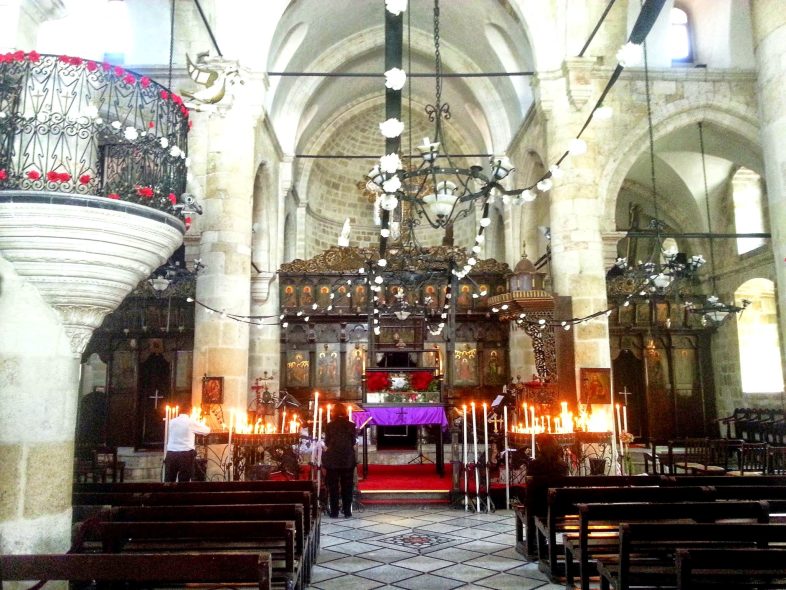2,200,000,000 Christians could be cheering the Muslim God
#Hallelujah is a Christian expression of worship and rejoicing but there is something odd about it because it looks like they are really cheering the Muslim God.
You see, etymologically speaking, Hallelujah is a linguistic compression of a well known Arabic phrase ‘halilu lillah’ (halil li Allah) “raise your voices in hailing Allah”.
Now, Arabic ‘halil’ “hail” sounds very familiar in the English ‘hail’, and probably one of the claimed 6,000 Arabic words in English. What the Etymology Online Dictionary is saying about “hail” is not convincing: “Hail: to call from a distance,” 1560s, originally nautical, from hail (interj.). Related: Hailed; hailing. Hail fellow well met is 1580s, from a familiar greeting. Hail Mary (c.1300) is the angelic salutation (Latin ave Maria) in Luke i:58, used as a devotional recitation.”
The “c. 1300” is cited as origins of so many words. It is suspicious because that’s the time when the Crusades came to an end, and the soldiers of God and their entourage went back with them carrying lots of booty including lots of words they heard in the “Holy Land”. If you want to prove the origin of a word you have to go back much further than the 1300s.
Nor “hail” is an isolate in religious verbiage. The word for bible in Arabic is “Injeel” from which “angels” “angelic”, etc., were derived, it seems.
Pisst! Injeel is from Angal, a Sumerian compound.
Etymologically speaking, again, all religions appear to lead to Sumerland with Babylonian blissful re-working.
However, it was etymologically indicated elsewhere that Christianity, Islam and Judaism recognise the same God known in prehistoric times as “El” or “Il”.
Proof: We gave you the linguistic cluster (*’L/*L’) but here is another proof from Akkadian:
ilu [DINGIR : ] (n. ; pl. ilū, ilānu) [Religion] god , deity ; bēt ilāni : the house of gods ; il āli : the god of the city / city god ; ilānû : favored by the gods ; ilu rabiu : a great god ; illil: the highest god / the supreme god / the god of gods ; bēt ili : the house of the god ; ṣalam ili : the image of the god ; angubbû : a standing god ; ilu mušallimu : a tutelary god ; iltu / ištāru : a goddess ; ilūtu : divinity / being a god ; ša lā ilāni : godless , impious , ungodly ; (ša) kī ili : godlike , divine ; nūrtānu : like Ninurta / divine ; (ša) ili : godly , pious , devout , believer (?) ; ilāni : the gods ; ilumma ! : by God ! palāḫu : to serve (a god) ; šār ilāni : l’esprit des dieux ;
Image: The Greek Orthodox Church of Antioch, also known as the Greek Orthodox Patriarchate of Antioch and All the East and the Antiochian Orthodox Church. The seat of the patriarchate was formerly Antioch, in what is now Turkey. However, in the 14th century, it was moved to Damascus, modern-day Syria, following the Ottoman invasion of Antioch. Its traditional territory includes Syria, Lebanon, Iran, Iraq, Kuwait, Arab countries of the Persian Gulf and also parts of Turkey. Its territory formerly included the Church of Cyprus until it became autocephalous in 431. Both the Orthodox Churches of Antioch and Cyprus are members of the Middle East Council of Churches.
Last modified: September 1, 2017



